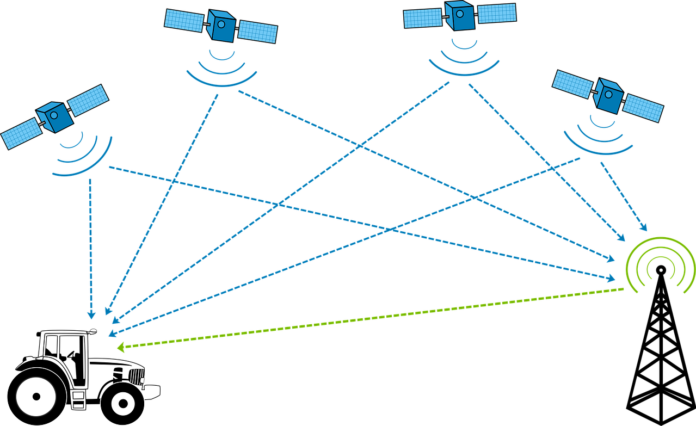GPS, or Global Positioning System, is a disruptive technology that is redefining the way people approach and understand the fleet industry.
In simple terms, GPS is an advanced satellite-based navigation system that uses several compatible devices to send real-time data to the user of the device.
The fleet industry has been leveraging the maximum potential of GPS technology for quite some time now. No wonder the global vehicle tracking market is projected to grow at a robust CAGR of 20 percent between 2019 and 2025.
But, GPS technology is a fast-changing field, and it changes at a faster pace than most people can think about.
Keeping pace with such a dynamic field requires you to stay updated about the latest devices that are creating the right buzz, especially in the fleet industry. This article gives you a ready reckoner of the various applications of GPS devices for your fleet.
The Mechanism Behind GPS Fleet Tracking
The concept of GPS fleet tracking is simple.
Several satellites in the sky are a part of the Global Navigation Satellite System (GNSS).
The satellite communicates directly with the GPS devices installed in the fleet or around other immovable assets. It also collects vital information related to fleet and asset management and sends it to the manager’s dashboard through wireless data transfer technology.
Modern GPS devices incorporate the best features of the Internet of Things, Big Data, and Predictive Modelling to automate fleet and asset management.
Some advanced GPS devices like Samsara can even predict bad weather conditions or road blockades in advance; they even have a temperature monitoring system that ultimately facilitates better fleet management.
The Types of GPS Devices For Fleet and Their Applications
Modern technology has made it possible to use GPS in a way never seen before.
GPS devices, as part of Telematics, can automate everything from fleet operation to maintenance, diagnosis, and enhancing productivity.
A recent study found that an effective GPS-based fleet management system can save up to 25% fuel, and reduce idle time and overtime by up to 30% and 15%, respectively.
The following are the applications of the major GPS devices that most fleet owners install to upgrade and modernize their fleet:
1. GPS Fleet Tracker
The GPS fleet tracker is an in-cab unit, which tracks the location of the vehicle, its speed, braking frequency, and other metrics in real-time. It then sends the live data to the fleet manager’s dashboard through cloud integration.
It also provides an aerial view of the vehicle, which the fleet manager can use to gauge the performance of the fleet.
Advanced GPS trackers can notify the fleet owner when the driver over-speeds, begins or ends the trip, deviates from the intended route, or stops unnecessarily. It also allows you to configure alerts that can notify instances of idling, stoppage, tampering, and maintenance.
Another benefit of the vehicle GPS tracker is that it provides you with historical trip records, which include total miles driven, idling, stoppages, speed, and engine time. Many tracking devices also allow trip replay, which can help the fleet manager to analyze the fleet driving patterns.
2. AI Dash Cam
An Artificial Intelligence-driven dash cam can prevent accidents from taking place. By analyzing AI and g-force accelerometer data, the system automatically alerts the driver when they resort to unsafe driving practices.
A driver may get automated alerts for the following four reasons:
- Distracted driving, in which a driver might feel sleepy or attend to a phone call
- Tailgating – where a driver follows some other vehicle too closely
- Rolling Stops – Helpful in detecting traffic signal violations
- Rash Driving – Detects harsh turning, braking, acceleration, and crashes
The installation procedure of an AI dashcam is super-easy, making it all the more useful in preventing accidents. Usually, a driver app makes it easy for the driver to check driving patterns and history by integrating it with the AI dashcam. It also offers coaching tools and reward programs.
In case an incident takes place that is beyond the control of the driver, the dashcam automatically records the incident and uses cloud connectivity to send the footage to the fleet manager. The fleet manager can then use the footage to assist the inquiry and take steps to stop such events from occurring again.
3. Vehicle IoT Gateway
The Vehicle IoT Gateway acts as an information cluster. It collects data from various satellite systems and provides accurate live location, even in challenging weather conditions.
Its multiple sensors help to evaluate fleet engine, fuel use, driver behavior, and safety aspects. It becomes especially helpful while carrying temperature-sensitive cargo. With wireless temperature modulation, you can always stay assured that the perishable goods will always reach your customers in the best condition.
The Vehicle IoT Gateway also helps the fleet in complying with the Hours of Service mandate. It allows you to implement Electronic Logging Devices seamlessly, which results in improved reporting.
4. Asset Tracking
Asset Tracking, also known as Equipment Tracking, is the process in which a fleet company keeps track of its immovable assets. It can also be used to track stationery goods inside the fleet.
Equipment trackers are of two types – powered and unpowered.
An asset tracker tracks goods that are being carried in trucks or goods that are lying dormant. The powered tracker can track the mileage of the vehicle and send maintenance alerts.
Another advantage of an asset tracker is that it is enabled with geofencing features, which makes your fleet and assets theft-proof and safer than ever before.
Why Do You Need a Fleet Management Solution?
A fleet management solution comes equipped with all devices you need to carry out your business smoothly. The following are the reasons why most businesses prefer to upgrade their fleet with an ultra-modern fleet management solution:
- Reduces cost – By optimizing fuel use, increasing driver and fleet productivity, and scheduling maintenance, the fleet management solution brings down operational costs.
- Reduces Paperwork – As it allows you to keep all current and historical records digitally, you can stop worrying about sifting through tonnes of paper.
- Optimizes Routes – It helps your fleet to avoid routes that are affected by bad weather or traffic blockades, thus saving money.
- Makes ELD-logging Easy – It makes the HOS process easy by automating the log-in and log-out report generation process.
Conclusion
If implemented properly, GPS technology can help make fleet risk management much more efficient, and it can surely be a game-changer for your business. Keep an eye on this space to read interesting articles about the fleet management industry.















